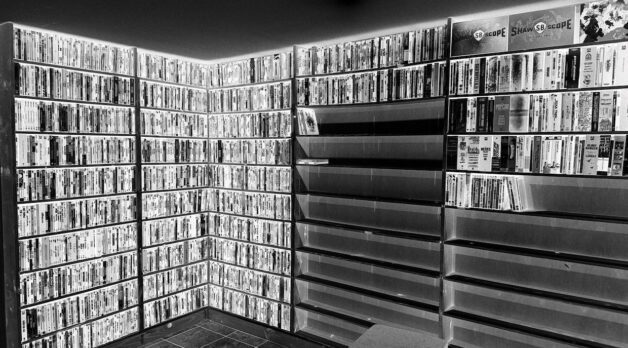Line Items
Featured 1/4
Learning By Doing: Producing My First Feature
 Stephen Musumeci and Jim Cummings on the set of The Big Game
Stephen Musumeci and Jim Cummings on the set of The Big Game
At nearly 6:00 a.m. on a Wednesday in late March, the sun began to rise in Tampa, Florida, and Stephen Musumeci called cut on The Big Game’s martini shot. The crew clapped and hugged, and Musumeci, who wrote and directed… Read more
-
Made in the USA: Tax Credits in 2025
Canada has long been known as “Hollywood North,” with American production companies taking advantage of the country’s favorable exchange rate, tax incentives and crew base to make movies for cheaper than they can in the United States. But, increasingly, a number of other countries and regions—the United Kingdom, Spain, the Canary Islands, Eastern Europe—have instituted enticing tax credits aimed at attracting international production, so much so that, for many U.S. independent producers, making a low-budget indie in the States is no longer an automatic proposition. After considering multiple locations, for example, Brady Corbet’s Oscar-nominated The Brutalist wound up faking the […]
-
Arriving at a Resolution: Remastering Movies for 4K Ultra HD Blu-ray

We have reached a tipping point in the format wars, with UHD poised to overtake standard definition DVDs for first place. Now, there’s a new species of reply guy—one who responds to every Blu-ray release announcement with, “Why no 4K?” As a home video producer for Kino Lorber, I will try to explain the continuing rise of 4K UHD, as well as the economic realities of why it’s not possible to release everything in the format. 4K UHD (full name: 4K Ultra HD Blu-ray) is the highest resolution disc available and the one preferred by collectors. Introduced in February 2016 […]
-
Striking Film Prints in a Digital World: Laser Printing, CRT Screens and a One-Stop Film Recorder from Norway

In 2006, Rune Bjerkestrand was on the Universal lot in Hollywood, far away from his home country of Norway. His brand-new invention, the Cinevator, could create a film negative from a digital file in real time—a vast improvement over other recorders that could take 10 days or more to craft a negative for a 90-minute film. But was the quality there? Technicolor set up a blind test to find out. “We didn’t really have a clue about film, about film technology, about the film industry, about film machines—nothing,” Bjerkestrand says. After the split-screen test footage ran, everyone in the theater […]
-
My Hot Librarian Summer: Libraries and Independent Film Distribution Strategies

It can take two or more years for independent films to progress through festival, theatrical, VOD, streaming and maybe airline releases, after which their discoverability fades. For filmmakers, the question then becomes, “How will people discover my movie now?” For many, the answer revolves around libraries. Across public, college and university libraries, there are estimates that up to 30 percent of library checkouts are movies, not books. Filled with DVDs, libraries have become the new Blockbuster—but, increasingly reliant on library-specific streaming services, they’re also becoming the new Netflix. Many of us independent filmmakers are so excited to sign a distribution […]
-
On the Way to the Cutting Room: How to Be an Assistant Editor
If you’ve ever wondered, “What even is an assistant editor, and what do they do?,” you’re not alone. I find myself explaining my job repeatedly to my perplexed but well-meaning family members and even to other people in the film and TV industry. The job varies from project to project, but mostly an assistant editor deals with various technical aspects of post-production so the editor can focus on the creative work of editing. That said, it’s not an entirely technical role. Sometimes, an assistant gets the chance to help the editor creatively through assembling scenes or working on sound design; […]
-
The Editor’s Signature

Alex Saks remembers the process of producing Thoroughbreds, the dark suburban teen thriller written and directed by Cory Finley, as a whirlwind. At the time, Finley was a hot up-and-coming playwright making his first foray into filmmaking, and he didn’t have an established team of collaborators. With a limited window of actor availability, production launched shortly after Finley delivered a script, which meant there was a tight window to hire key crew. Among the most important decisions the team had to make was who would edit the movie. “[An editor] really is the department head on the movie, other than […]


